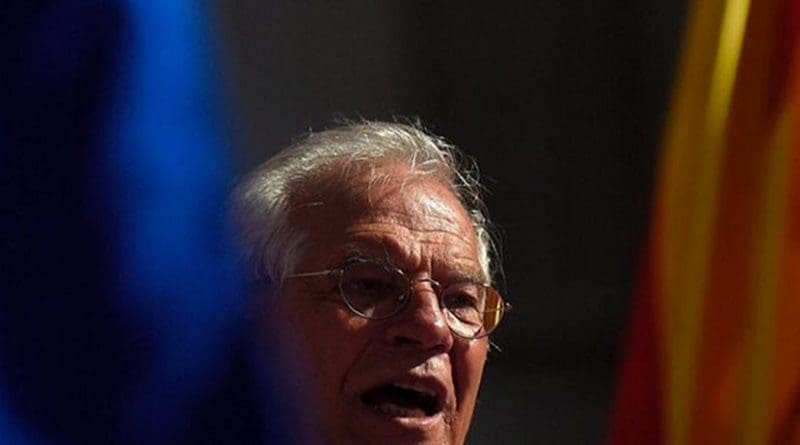EU Unveils €15bn COVID Rescue Plan, But Includes No New Money
By EurActiv
By Benjamin Fox
(EurActiv) — The EU unveiled on Wednesday (8 April) a support package worth €15.6 billion for African and other partner countries hit by the coronavirus pandemic, but conceded that it includes no new money.
Speaking after the meeting of development ministers, EU Foreign Affairs chief, Josep Borrell, said that the ‘Global EU response to COVID-19’ programme would help combat the “worst crisis in decades”.
The programme will combine direct budget support, loans, and guarantees from the European Investment Bank and European Bank for Reconstruction and Development.
However, Borrell was quick to confirm that “the bulk of the funding comes from the reorientation of existing funds and programmes”.
“There is no fresh money,” he added.
The EU’s top diplomat said he hoped the package would be topped up to more than €20bn with further contributions from the EIB, EBRD and member states.
Some €502 million has been earmarked for the urgent, short-term emergency response, while €2.8 billion is to be used to support research, health and water systems in partner countries and €12.28 billion to address the economic and social consequences of the coronavirus pandemic.
Of this, 31% of the earmarked funds will be allocated to Africa, including €2.06 billion for sub-Saharan Africa and €1.19 billion for the North African neighbourhood countries. A further €1.42 billion in loan guarantees for sub-Saharan Africa and the North African neighbourhood countries will come from the European Fund for Sustainable Development (EFSD).
Around €3.07 billion will be channelled to the EU’s neighbourhood countries in eastern Europe.
“No country will be losing financial help from the European Union,” added Borrell.
Although African countries have so far avoided the high infection rates and death tolls from COVID-19 seen in Europe and North America, the total number of cases across the continent hit 10,000 on Wednesday, and most countries have imposed strict lockdowns and curfews.
That is set to result in a large economic hit, and the EU’s plans are likely to leave developing countries distinctly underwhelmed.
African finance ministers have called for an immediate emergency economic stimulus worth US$100 billion, including the waiver of all interest payments, estimated at $44 billion for 2020, as well as the possible extension of the waiver, which ministers say would “provide immediate fiscal space and liquidity to the governments”.
A debt relief programme could be agreed at the Spring Meetings of the World Bank and International Monetary Fund on 16-17 April.
The two Bretton Woods institutions have already given their endorsement for debt relief and said they will seek to get approval from governments. That could move forward if approved at a meeting of G20 Finance Ministers next week.
“We haven’t discussed this issue (debt relief) today, but we as the EU are supportive of a global co-ordinated response for a debt moratorium for the poorest countries, with concessional loans from the International Development Association (IDA), aimed at easing the debt burden from bilateral official creditors,” said Borrell.
However, ministers appear to have closed the door on the EU offering any new financial instruments or investment programmes for African countries.
“More time will be needed to better assess the crisis’ impact and financing needs for each IDA country, and to determine what kind of debt relief or restructuring is needed,” the EU executive said in a statement on Wednesday.
“Any new lending, even highly concessional, should be taking place within the framework of the World Bank and IMF, to ensure sustainability of public debt,” it added.
Emily Wigens, EU director at The ONE Campaign, said that “mobilising €15.6 billion to support a global COVID-19 response is a solid start”.
“But if you consider that the EU invested just €2.6 billion in health between 2014-2020, this package illustrates how much more expensive it is to respond to a crisis, rather than prevent one with long-term investment,” she added.

